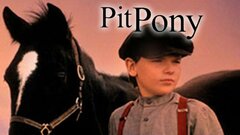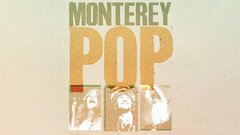Denny Doherty

Singer • Musician
Birth Date: November 29, 1940
Death Date: January 19, 2007 — 66 years old
Birth Place: Halifax, Nova Scotia, Canada
Partners: Michelle Phillips
Bands: The Mamas & the Papas
One of the founding members of the 1960s pop group the Mamas and the Papas, Denny Doherty's soaring voice and ringing harmonies brought luster to the group's biggest hits, including "California Dreamin'," "Monday, Monday" and "I Saw Her Again." A veteran of the folk scenes in both America and his native Canada, Doherty joined John Phillips, his wife Michelle, and Cass Elliot in 1965 to form the group, which quickly exploded into one of the biggest acts in pop music. But internal strife, both professional and romantic, soon tore them apart, leaving Doherty to flounder until returning to Canada in the mid-1970s to forge a new career as an actor.
After reuniting briefly with Phillips in a new Mamas and Papas lineup, he found fame as the host of "Theodore Tugboat," (CBC, 1993-2001), a popular children's series seen around the world. After being inducted into the Rock and Roll Hall of Fame in 1998, he created "Dream a Little Dream," a musical review based on his experiences with his former bandmates, which drew critical acclaim. Doherty died in 2007, leaving behind a life filled with beautiful music that continued to thrill generations of listeners seeking their own version of California dreams.
Born Dennis Gerrard Stephen Doherty on Nov. 29, 1940 in Halifax, Nova Scotia, he was one of two sons in a working class family led by a father who had briefly flirted with a music career before turning to pipe fitting as a more stable means of support. Doherty, however, held dreams of stardom, and began singing as a teenager with a rock-n-roll band called the Hepsters.
In 1960, he switched to folk music and led the Colonials, a vocal trio which drew praise for their harmonies. After changing their moniker to the Halifax Three and adding fellow Canadian Zal Yanovsky on guitar and banjo, the group landed a record deal with Columbia Records, where they scored a minor hit with "The Man Who Wouldn't Sing Along with Mitch," a humorous tribute to Columbia Records A&R chief Mitch Miller. While playing the Greenwich Village circuit of folk clubs, Doherty became fast friends with another up-and-coming folk singer named Cass Elliot, who was performing as part of a vocal trio called The Big Three.
In 1963, both groups were part of the Hootenanny tours, which packaged folk acts associated with the ABC series of the same name (1963-64). A jaunt through the Deep South and Southwest saw the Halifax Three supporting the New Journeymen, which featured singer-songwriter John Phillips, his wife, former model Michelle Phillips, and future screenwriter and director Marshall Brickman.
Both the Halifax Three and the Big Three folded in 1963, and from their ashes came the Mugwumps, which was comprised of Doherty, Elliot, Yanovsky and folk veteran John Sebastian. The outfit lasted long enough to record a handful of singles before splitting into two separate, more successful groups: Sebastian and Yanovsky co-founded the Lovin' Spoonful, while Doherty, finding himself suddenly unemployed, leapt at an offer from John Phillips to replace Brickman in the New Journeymen.
That group also folded, and Doherty relocated with Phillips to the Virgin Islands, where they hatched a plan for a new vocal group. Doherty suggested that they add Elliot to the lineup, but Phillips refused, stating that the Rubenesque singer would detract from their appeal. But after hearing Elliot harmonize with the other three members, Dunhill Records stipulated that her inclusion in the group would be the only way that they could agree to a contract.
The quartet, which dubbed themselves the Mamas and the Papas, scored a Top 5 hit with their second single, "California Dreamin'," and preceded a string of breezy pop hits like "Monday, Monday" and "I Saw Her Again" between 1965 and 1967. With their glittering harmonies, youthful vitality and limitless hip caché, the Mamas and the Papas seemed to epitomize the sunny ideas of the growing '60s counterculture.
Offstage, however, the band was awash with interpersonal turmoil. Doherty had fallen madly in love with Michelle Phillips, and their ensuing affair prompted John Phillips to expel her from the group. Doherty drowned his sorrows in alcohol, while Elliot - who had fallen in love with Doherty - took out her frustrations on Michelle Phillips. Meanwhile, the animosity between Elliot and John Phillips reached its breaking point during a 1967 jaunt to England when Phillips leveled an insulting remark at her in front of Mick Jagger.
Elliot, who had begun to chafe at the group's whitebread image, announced her departure from the group. However, their contract with Dunhill Records required two more LPs, so the quartet marshaled their forces to complete their service to the label. Ironically, their last substantial hit was "Dream a Little Dream of Me," which only featured Elliot's vocals. After delivering a lackluster performance at the groundbreaking Monterey International Pop Festival, the group announced their breakup. Phillips would record each of their vocal parts separately for 1971's People Like Us, which completed their contract with Dunhill.
Doherty and Elliot remained friendly after the group's demise. She reportedly asked him to marry her, largely as a means of saving him from an alcohol-induced spiral. Doherty declined, and made a fitful attempt at a solo career with 1971's Watcha Gonna Do? and 1974's Waiting For a Song. The latter featured Elliot on backing vocals, and would serve as her final recorded efforts before her untimely death that same year. Devastated, Doherty turned his back on pop music and began exploring a career in acting.
After a short-lived stint on Broadway in the musical "Man on the Moon," which was produced by John Phillips and Andy Warhol, he returned to Canada, where he gained sobriety and starred on his own variety series, "Denny's Sho*" (CBC, 1978). More stage performances preceded his joining a reconstituted Mamas and Papas featuring Phillips, his daughter, actress Mackenzie Phillips, and Elaine McFarlane of Spanky and Our Gang. He departed the new group in 1986 to resume his acting career in Canada, where he became a respected character actor on television.
In 1993, he delighted a new generation of fans as the Harbourmaster, host of the popular children's program "Theodore Tugboat" (CBC, 1993-2001), which was set in his native Nova Scotia. At the height of his newfound fame, Doherty returned to the United States to be inducted into the Rock and Roll Hall of Fame with the surviving Mamas and Papas in 1998, which was followed two years later with their induction into the Vocal Group Hall of Fame. That same year, he produced and starred in "Dream a Little Dream: The Nearly True Story of the Mamas and the Papas," a stage show which featured songs from the band's catalog as well as his recollections of his time in the group. Produced as a response to the 1988 documentary "Straight Shooters: The Mamas and the Papas," the musical sought largely to pay tribute to Cass Elliot, whose popularity extended to both counterculture and mainstream audiences. The show was received enthusiastically by audiences, who helped to earn it an off-Broadway run in 2003.
In 2007, Doherty filmed his final screen appearance in an episode of the cult TV comedy "Trailer Park Boys" (Showcase, 2001-09) shortly before undergoing surgery for an abdominal aneurysm. Kidney failure ensued, and Doherty died of a second aneurysm on Jan. 19, 2007 at his home in Mississauga, Ontario. He, along with Elliot and John Phillips, who died in 2001, were posthumously inducted into the Hit Parade Hall of Fame in 2009.
Credits

California Dreamin': The Songs of the Mamas and the Papas

Trailer Park BoysStream

Prince Charming

Willy y Su Pony

Elvis Meets Nixon

Pit PonyStream

Willie y Su Pony

Hurt Penguins


